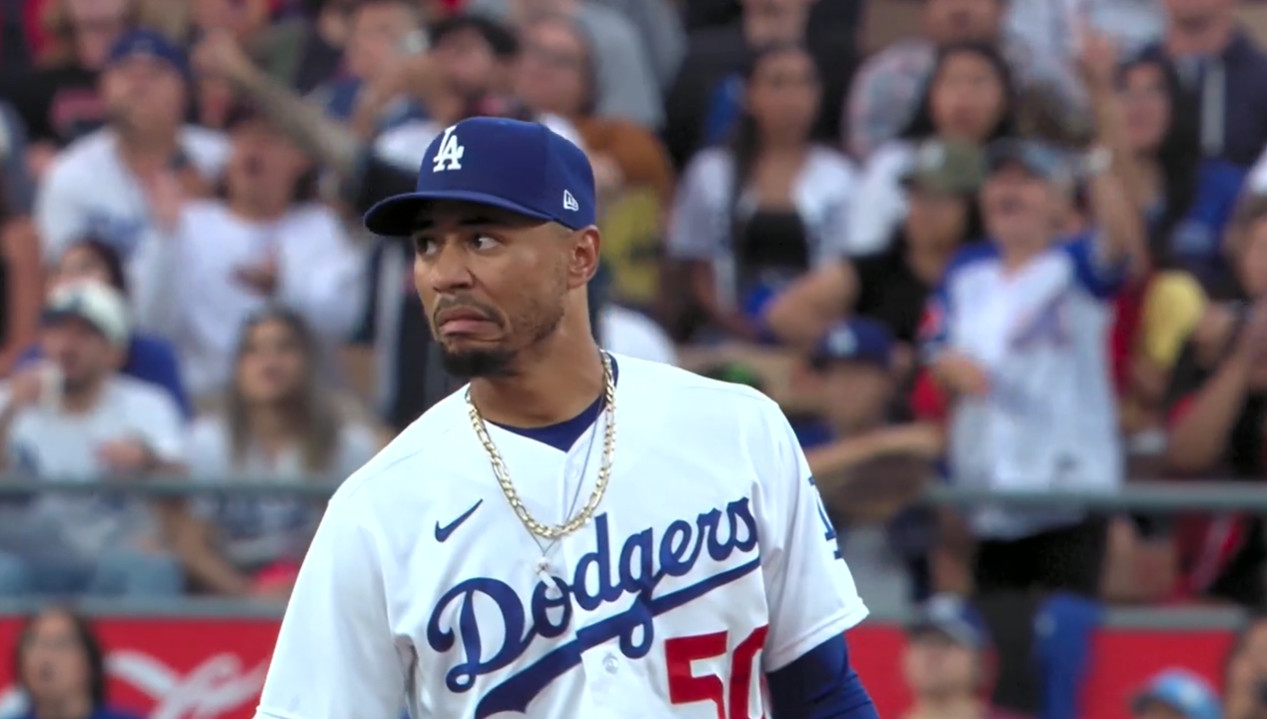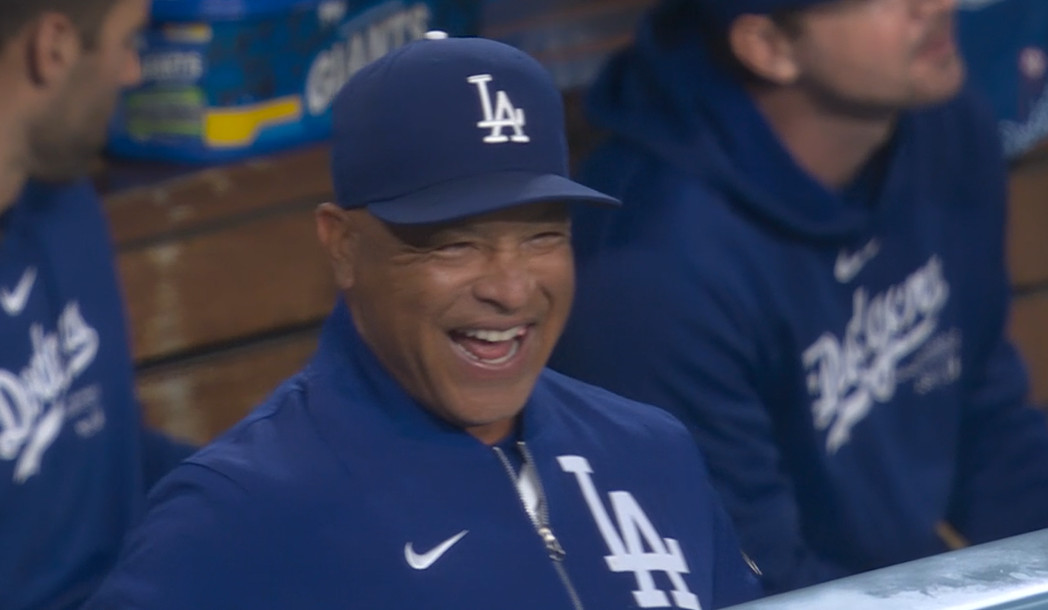Been a while for one of these, and obviously there’s been a lot worth reading that’s been published since the season ended, but I wanted to highlight some specific stuff here.
======
ESPN: Over a month later and Jeff Passan writing about the 2024 World Series win being validating for the Dodgers — while also providing a ton of insight — is still probably the best work done on it.
“It only hurts when I miss,” Freeman told his father. “So I’m just going to have to stop missing.”
What a quote.
“That’s how I feel about myself,” Buehler said. “Who else is going to do it? Who else is going to be out there? Who else is supposed to do this? We’ve got 30 guys that believe that same way. And I was just the one in the spot to do it.”
What a quote again.
The Athletic: Speaking of vindication, Andy McCullough wrote about how it was specifically that for Dave Roberts, who is now on track to be a Hall Of Famer.
His .618 winning percentage is the best of any non-Negro Leagues manager. He has never won fewer than 91 games in a full season; the Dodgers have topped 100 victories in five of those eight years. He has now won the World Series more often than Bobby Cox (class of 2014), Whitey Herzog (class of 2010) and Jim Leyland (class of 2024). He has won the pennant four times, as often as Earl Weaver (class of 1996), Dick Williams (class of 2008) and Tom Lasorda (class of 1997).
Roberts called it “humbling” to be mentioned in the same category as Lasorda and fellow former Dodgers skipper Walter Alston, a four-time champion. “Never thought I would be in that same conversation,” Roberts said. “I’m a part of a great organization, a lot of great people around me supporting me, and we’ve won a lot of ballgames. This is something I really wanted. I wanted this one.”
His colleagues were more effusive.
“Dave’s a Hall of Famer,” Dodgers bullpen coach Josh Bard said. “It’s a fact. He’s won it all different kinds of ways. He should have three.”
Funny how quickly things change, right? The Dodgers brass will deny it, but if they were eliminated in Game 4 of the NLDS this year, there appeared to be a decent chance Dave would be fired. Now he’s in line for a big extension and is getting his flowers, so to speak.
——
Los Angeles Times: Jack Harris looked into the financial boon Shohei Ohtani has gifted the Dodgers.
In addition to the windfall of corporate sponsorship money, the Dodgers saw increases in ticket sales, merchandising and even tours of Dodger Stadium (the team has been told by Japanese tourism officials that more than 80% of people who visit Los Angeles from the country go to the ballpark during their trip).
In a way, Shohei might pay the Dodgers to play at an MVP level for them.
While the team declined to disclose specific Ohtani-related revenue totals, some reports now estimate the player’s annual influence on the franchise to be in the nine-figure range. Tack on the investment opportunities his salary deferrals create, and the forecasts of him being a billion-dollar profit machine for the franchise seem on track.
As people complain about the spending of the Dodgers, it’s important to remember they are basically complaining about Ohtani’s existence and the advantages he provides. He is literally the “unfair” advantage, and I don’t think there’s any way to stop that, hence the desperate struggle for a hating narrative.
Baseball Prospectus: Speaking of those types, Marc Normandin writes in defense of deferrals and spending, but mostly highlights the problem of teams not trying and how that allows the Dodgers to thrive.
The Dodgers have the money, yes, but more importantly, they’ve built the kind of reputation and organizational culture where players trust deferrals to be worth it. If there’s any unfair advantage to be spoken of, it’s that one, but the solution to stopping the Dodgers from benefiting from it isn’t a salary cap. It’s for these teams to change something about their own reputations and spending habits, to put themselves in a position to keep the Dodgers from being able to act like this.
And since many of them won’t do any of that, instead, we’ll get harsher calls for luxury tax penalties, or stricter rules about deferrals, or cries for a salary cap, all to keep the Dodgers from exposing who’s really at fault here for the state of things.
Ohtani is a cheat code, but the Dodgers were able to appeal to him through their body of work since Mark Walter, Stan Kasten, and Andrew Friedman came on board, and it’s hard to argue that they don’t deserve to reap the rewards for that.
The Athletic: While we’re on the topic, Evan Drellich looked at the details of deferrals and did a bit of an explainer on it.
If a player’s 2024 salary was deferred, it doesn’t matter whether he’s to be paid out in 2030 or 2040 or later — the team needs to put aside a significant payment no later than July 2026, and keep it cordoned off until payment is made.
The agreement goes on to say that “fully funded” means a team “must have funded, for the duration of and without interruption in each year, the current present value of the then outstanding deferred payments, discounted by 5 percent annually.”
Owners have some choice in how they hold the money, though. Teams can invest deferred salary — although they have to be careful what investments they choose — and keep the returns. The Dodgers are owned by Mark Walter, co-founder of a global investment firm, Guggenheim Partners.
I wish the whiners would read this, but that would require them to want to understand, I suppose.
——
FanGraphs: Transitioning into 2025 for a bit, the Dodgers are already looking like arguably the best team in the majors on paper.
The Dodgers are the early favorite to enter 2025 as the team ZiPS projects to win the most games. Shocking, right?
Could still use like one outfielder, one or two starters, and one reliever, though.
MLB: On an individual level, Mike Petriello (who?) talked about Mookie Betts making up for his diminishing speed with great jumps.
This is of nearly 1,800 player-seasons since 2018 where a player has had at least 500 steal opportunities – meaning pitches, not plate appearances. Of all those hundreds and hundreds of seasons, Betts ranks first, second, tied-third, fifth, sixth, and seventh in gaining distance while the pitcher is in motion. (He is also, for what it’s worth, tied for 11th [2016] and 23rd [2019].) That’s not a fluke. It’s a purpose.
It’s at least in part why, if you go back through all of baseball history, Betts is the 25th-best baserunner on record (through age-31), via FanGraphs metrics. It’s not all about steals, is it?
Hypothetically, I’d think this should help him in his move to the infield as well.
——
Baseball Prospectus: Understandably, there’s been a lot of talk about robot umps, but Russell A. Carleton explains some of the risk in implementing that, as it’ll likely change the game as we know it.
If you’re going to turn some pitches that were in a “60% of the time” strike zone into surefire strikes, that’s going to mess with the whole ecosystem. We saw above that batters respond to increasing probability of a strike by swinging more often, because their other option is accepting a higher likelihood of a strike. Would they be incentivized to chase worse pitches that the evidence shows that they have a harder time making contact on? The reality is that there’s the “definitely a strike” zone. There’s the “definitely not a strike” zone. And there’s the fuzzy zone. There are different rules in the fuzzy zone. Taking away the fuzzy zone and forcing it into the yes/no zone is going to have some very unpredictable consequences. Maybe they’d even be good consequences, but there would be consequences.
Definitely favor the challenge system due to all this, and also because I have some doubts about exactly how accurate the robots will be.
——
MLB: Old friend Sarah Wexler wrote about the Dodger fans at the parade, including our own Daniel Brim.
For Matt Gilson, Amy Pircher and Daniel Brim, the community they formed was more virtual. Even as all three lived outside of Los Angeles, they found each other through a Dodgers fan blog, Dodgers Digest, communing there and on social media for more than a decade before finally getting the opportunity to enjoy a parade together. (The author was previously a contributor to Dodgers Digest.)
Brim, who came in from Santa Barbara, had deliberated if the trek would be worth it. Turns out it was.
“Being surrounded by people who have the same or a similar connection with the team and the city, too, it’s a really special experience,” said Brim.
Dodgers Digest shoutout!
AJ Gonzalez Writes: Old friend AJ Gonzalez wrote about enjoying the journey of watching the Dodgers.
It’s time to bask in it, all of it. The ups and downs, the brutal series in Philadelphia, the moments that look miserable but inevitably still have some joy. That’s the true magic of being a Dodgers fan. It’s in the enjoyment of those bad games, good games, and ridiculous games. Let’s not call it the “slow burn of the regular season.” Let’s call it the burning brilliance. Let’s call it the ignition of the crowd when our favorite player’s walk-up song comes on. Let’s call it all super hot fire. Any more flame platitudes I can use to make my point?
I have perhaps a naïve hope that more fans will be able to do this now.
======
Surely this will be the year I keep up with this feature throughout the season.
Surely.

 Dodgers Digest Los Angeles Dodgers Baseball Blog
Dodgers Digest Los Angeles Dodgers Baseball Blog
